Webinar: Ensuring Provider Data Isn’t the Source of Surprises
Overview
The No Surprises Act (NSA) which went into effect on January 1, 2022, provides consumers federal protections from unexpected medical bills. One of the provisions of the No Surprises Act requires health plans to update their provider directories more frequently. This gets to the root cause of surprise billing, which is patients’ ability to easily identify which providers are in-network. If payers can update their directory in just 48 hours, as the law mandates, patients will have a much better chance of finding care that’s covered by their plans.
Sounds easy, right? Except for the fact that health plans are processing an avalanche of provider data each day, and that data is NOT streaming in seamlessly through a shared platform between payers and providers. It’s no surprise (pun intended) that the provider directory updates can take weeks, cost millions of dollars, and still have an accuracy rate of 60%. That’s hugely problematic since payers rely on this information not only to update their provider directories, but also to determine which providers should be paid contracted rates, for specialty and licensing updates, and for billing information changes that are necessary to pay claims.
What You'll Hear
Historically it has been challenging for payers and providers to solve all these issues, but new cutting-edge innovations now make it possible to automate the millions of human hours spent cleaning and keying in this data, as well as improve its accuracy. Watch this event recording to discuss how leveraging automation can help solve the provider directory problem.
Speakers
- Dan Hoodin, Vice President, Managed Care Strategy and Development, Hospital Sisters Health System
- Mike Kane, Vice President, Provider Operations; Principal, Provider Data Accuracy, United Healthcare
- Lynda Rowe, Senior Advisor, Value-based Markets, Intersystems
Sponsored by
![]()
WEBINAR: Surprise! The No Surprises Act is Coming!
New price transparency requirements are on their way!
In addition to ending the practice of “surprise billing,” the new CMS regulations also requires price comparison tools and new patient protections through price transparency – and their effective date is less than six months.
eHI, Axway, the American Heart Association, and Zelis Healthcare joined up to discuss the new requirements and their impact on the healthcare system. The webinar also explores common threads across recent healthcare data-sharing and transparency tools to identify actions that can help meet new requirements and decrease the administrative burden.
Speakers:

Josh Roll
Government Relations Manager
American Heart Association
Josh serves as Government Relations Manager with the American Heart Association’s Federal Advocacy team. In this role, Josh works to advance the American Heart Association’s federal legislative agenda on Capitol hill around health care access. Prior to joining the American Heart Association, Josh served as the Manager of Congressional Affairs with the Healthcare Information and Management Systems Society (HIMSS).
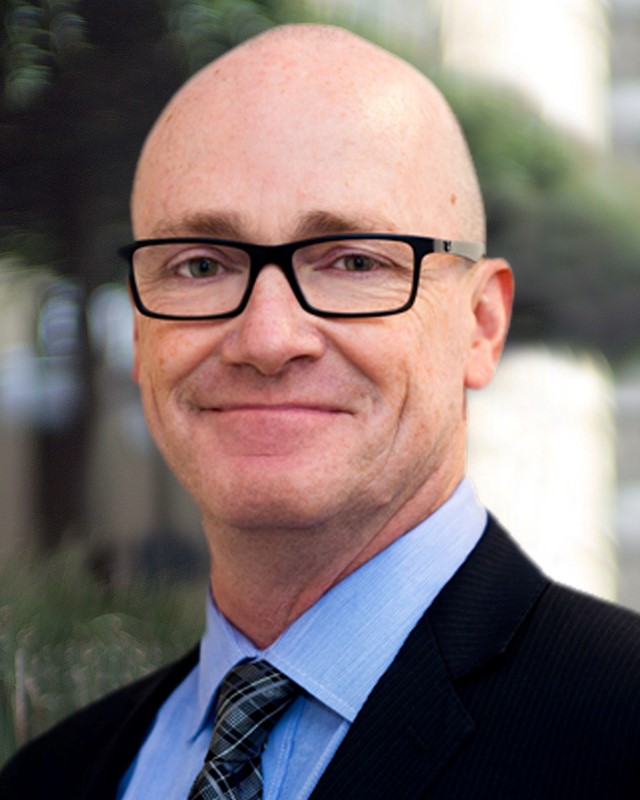
Matthew Albright
Chief Legislative Affairs Officer
Zelis
Matthew has over 15 years of regulatory, political and public affairs experience.
Prior to joining Zelis, Matthew oversaw the certification program at the Center for Affordable Quality Healthcare (CAQH) and Committee on Operating Rules for Information Exchange (CORE) to ensure conformance with the requirements of the Patient Protection and Affordable Care Act (PPACA).
He also served as Director of the Administrative Simplification Group for the Centers for Medicare & Medicaid Services (CMS). In this role, Matthew was responsible for drafting the regulations that implemented Section 1104 of PPACA which specifies the requirements of the Health Insurance Portability and Accountability Act (HIPAA) administrative transactions.
Matthew is a published author on bioethics, has written numerous state and federal regulations and taught as adjunct faculty at St. Martin’s University and Pierce College in Washington state.
Matthew earned a Master of Divinity from Harvard University with an emphasis in Bioethics, as well as a BA in Religion Studies from the College of Santa Fe and a BA in Print Journalism from the University of Southern California.
His greatest achievement: A place in the Guinness Book of World Records for the world’s longest softball game.
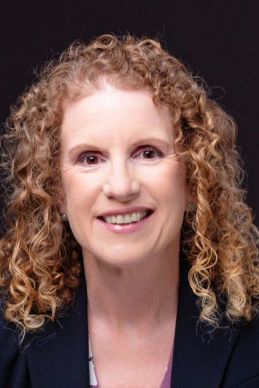
Ruby Raley
Vice President of Healthcare
Axway
Ruby Raley has a background in both technology and healthcare. Starting as a programmer, she grew into a divisional CIO before moving to healthcare and life sciences where she has held a variety of customer-facing roles. Ruby also has significant supply chain experience including a stint at Cardinal Health and a strong background working with payer and providers. Currently, Ruby applies her unique market insight and perspective to help customers solve problems and reduce costs using Axway's leading edge digital integration, API and content collaboration and healthcare solutions portfolio. Ruby holds a Master's of science in systems science from the University of West Florida.

Eric Holmberg
Director, Digital Delivery
Blue Cross Blue Shield ND
In his role, Erik Holmberg is responsible for the oversight of software development, project management, QA testing, code deployment and successful delivery of applications within BCBSND.
A native of the Fargo-Moorhead area, Holmberg joined BCBSND in 2014 as an IT portfolio manager. He then assumed responsibility as a manager in IT Solution Delivery before being promoted to his current position as director.

Wanneh Dixon
Director, Strategy and Programs
eHI
Wanneh previously worked as the Corporate Engagement Manager for FHI 360, an international development firm focused on global health, education and economic empowerment. At FHI 360 she managed the private sector engagement strategy to cultivate relationships with corporations, foundations, donors and membership organizations. Her global health portfolio focused on maternal mortality, non-communicable diseases, and health systems strengthening.
Wanneh holds a BSc in Information Technology from Herzing College and a M.A. in Global Development and Social Justice from St. John’s University. She lives in Maryland and serves on the Human Services Advisory Commission for the City of Rockville.
Wanneh directs our social determinants of health (SDOH) and data analytics programs.
This webinar is supported by
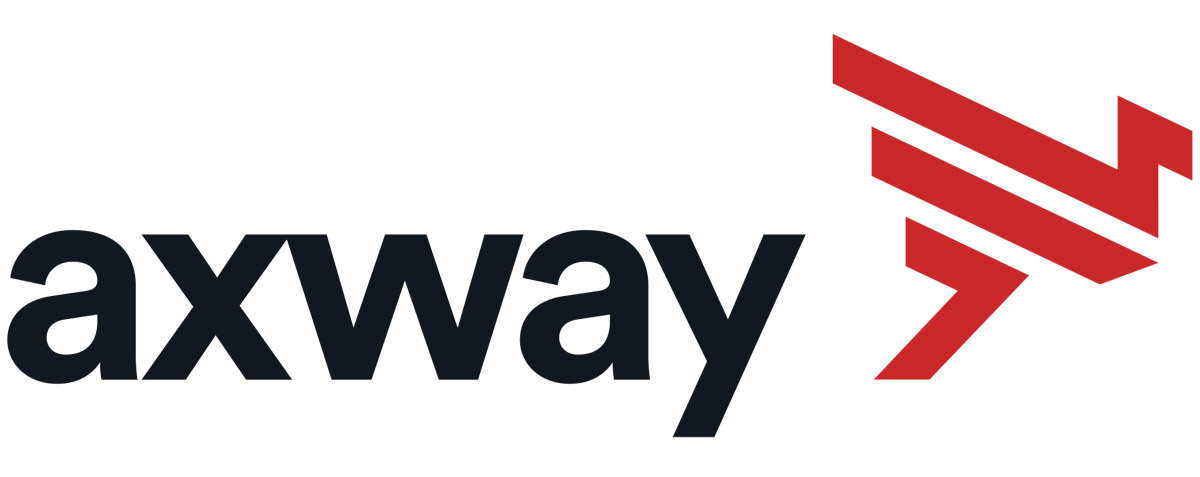
WEBINAR: The New Era of Healthcare - Patient Engagement and Consumerism
Despite investment in new consumer-facing digital health technologies, health plans and providers still struggle to meaningfully engage vulnerable populations. Join eHI in a discussion with experts to explore how to increase engagement of individuals at risk of worsening physical and mental conditions, including diabetes, social isolation, and injuries from falling. In this webinar, you’ll hear from two panels regarding the various ways that technology can be utilized to target and engage at-risk populations.
Speakers:

Amy McDonough
Managing Director & General Manager
Fitbit Health Solutions at Google
As the Chief Operating Officer for Fitbit Health Solutions, Amy leads the team working with employers, health plans and health systems to design solutions and programs focused on engagement, positive return on investment and health outcomes. Before her COO role, Amy took on several key positions leading Fitbit’s B2B efforts. Prior to Fitbit, Amy held strategic roles at CNET Networks, including Director of Audience and Content Development for the Community Division and Director of Strategic Partnerships for the Network. Amy has a bachelor’s degree from Merrimack College in Andover, MA and a Professional Certificate in Integrated Marketing Communications from the UC Berkeley Extension program.

Stacy Ward-Charlerie, PharmD, MBA
Director, Product Development
Strategy & Growth Department
AllianceRx Walgreens Prime
Stacy Ward-Charlerie is a Clinical Informatics Pharmacist with more than a decade of experience working in product and informatics roles. Currently, she is the Director of Product Development Solutions at AllianceRx Walgreens Prime, one of the nation’s largest specialty pharmacies. In this role she is responsible for leading the development new products and programs for payer and pharma clients. Prior to joining AllianceRx Walgreens Prime, Dr. Ward-Charlerie served as the President of WardRx Consulting, a firm providing consulting services for organizations seeking to use or enhance health information technology to improve clinical outcomes.
Previously, she held various roles at Surescripts, the nation’s largest health information network. While there, she led the growth and innovation of their Medication History product portfolio. She was also instrumental in launching the Critical Performance Improvement Program, working across the Surescripts Network Alliance to improve the quality of e-prescriptions. Dr. Ward-Charlerie spent her early career in the intersection of managed care and informatics working for Kaiser Permanente focusing on EHR system configuration to support utilization/formulary management and quality/safety initiatives.
Dr. Ward-Charlerie has published several peer-reviewed research articles on the interoperable exchange of healthcare data. She has served as an adjunct clinical faculty member at Notre Dame of Maryland University, graduate faculty at George Mason University and precepts PharmD candidates from local universities.
She received a Bachelor of Science degree in Biology from Nova Southwestern University, a Doctor of Pharmacy degree from Howard University College of Pharmacy, and completed a PGY1 residency program with Kaiser Permanente Mid-Atlantic States. She also holds an MBA in Healthcare Management.

Henry Archibong
Associate Vice President, Innovation Solutions
Inovalon
Mr. Archibong serves as Associate Vice President of Innovation Solutions for Inovalon, leading product innovation, interoperability strategy and operations for the Company’s payer and provider business units, as well as efforts to expand Inovalon’s connectivity infrastructure.
Mr. Archibong has nearly two decades of experience in healthcare IT. He began his career with Johnson & Johnson (J&J), where he successfully streamlined IT project execution and resource management across all 250 J&J operating companies globally.
Mr. Archibong transitioned into healthcare when was tapped to join Cooper University Health Care, in Camden, NJ, as their Director of Enterprise Applications. There, he successfully led the system-wide implementation and adoption of the Epic Electronic Health Record (EHR) for the health system.
He later joined Anne Arundel Medical Center (AAMC) in Annapolis, MD, as their Executive Director and Associate Chief Information Officer (ACIO). There he led several technology advancements for the health system, including the launch of a new Enterprise Resource Planning system, a Picture Archiving and Communication System (PACS), and deployment of Epic EHR across all of their ambulatory clinics. AAMC was recognized as one of the nation’s Most Connected Hospitals by U.S. News and World Report, as well as a HealthCare's Most Wired Hospital in 2015 and 2016 during his tenure as ACIO.
Prior to joining Inovalon, Mr. Archibong served as the Vice President and Site Executive for University of Maryland Capital Region Health in Prince Georges County, MD.

Fred Bentley
Managing Director, Policy
Avalere
Fred Bentley advises clients on health delivery and payment innovation, providing analytic and strategic insight on issues related to the delivery of care.
As an expert in fields ranging from payer strategy to hospital–physician alignment and post-acute care, he has worked with providers, including integrated delivery networks, academic medical centers, post-acute providers, and long-term care organizations as well as national and regional health plans. Over the past 5 years, his work has focused on supporting health systems engage in Medicare and Medicaid payment and delivery system transformation initiatives.
Prior to joining Avalere, Fred was a principal in the Accountable Care Solutions practice at The Chartis Group. In this role, he worked with leading hospitals and health systems in developing strategic roadmaps to guide their clinical innovation, population health, and cross-continuum integration initiatives. He also served as a managing director with The Advisory Board Company, managing a team of consultants and analysts who supported provider organizations ranging from physician groups and health systems to post-acute care providers.
Fred holds an MPP and MPH from the University of California, Berkeley, and a BA in political science from Haverford College.

Hope Kragh
Vice President, Health Plan Solutions
Amwell
For over 30 years, Hope has leveraged her passion and energy to drive her work with employers, health plans, and health systems to manage their enormous investment in healthcare for employees, members and patients. At both large and start-up healthcare companies, Hope created and executed client experience + success strategies, and directly impacted business development and strategic partnership results. She joined Amwell as VP, Health Plan Solutions, in 2020 to lead the company’s strategic work with health plans’ telehealth strategies following several years with start-up Collective Health where she developed the vision, design, and execution of a full-scale client experience team + strategy for a business portfolio spanning multiple segments. Hope’s additional experience spans over 25 years in national health plan carriers such as Anthem, UHC and CIGNA.
Hope has deep knowledge of the healthcare industry overall including network delivery models, population health and employee benefits strategies, plan operations, marketing, analytics, and consumer insights, and contract negotiations. She is passionate about disruptive change that will improve our healthcare delivery system and patient experience + outcomes and has been an active participant in health industry initiatives led by Pacific Business Group on Health, Catalyst for Payment Reform and the Purchaser Value Network Council.
Hope has also been a keynote speaker and expert panelist for healthcare industry events throughout the country, including MedCity Converge Conference, Health2.0, The Conference Board Healthcare Conference, Silicon Valley Employers' Forum Innovation Summit, Collective Create Health Conference, National Sales Meetings, and numerous industry fireside chats.

Eric Sullivan
Senior Vice President, Innovation and Data Strategies
Inovalon
Mr. Sullivan serves as Senior Vice President of Innovation and Data Strategies at Inovalon, supporting the innovation towards new product and technology solutions and providing executive leadership over all data integration, management, and governance programs. For more than 25 years, Mr. Sullivan has been leading clinical innovation and data-driven solutions in a variety of roles in the healthcare sector—with a keen focus on developing data-driven models to transform healthcare by improving quality, outcomes, and efficiency. He has held leadership positions in some of the nation’s largest health plans including UnitedHealthcare and led teams in the clinical care setting to deliver patient-centered, patient specific health care. His current role advances patient-precision analytics by leveraging big data technologies, Natural Language Processing (NLP), interoperability and real-time clinical data patient profiling.
Mr. Sullivan received his M.S. in Health Care Administration as well as an M.B.A from the University of Maryland. Mr. Sullivan also holds a B.S. in Neurobiology from the University of Maryland College Park.
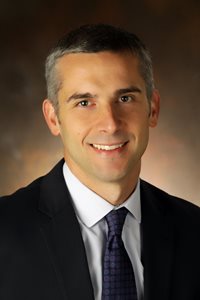
Will Kilbreth
Senior Vice President and Chief Information Officer
Maine Community Health Options
Will has over 20 years of experience in the healthcare, technology, and finance fields. Prior to joining Community Health Options, Will was the Deputy Director for Maine’s Dirigo Health Agency, overseeing technical and financial operations. During this time, Will also served as Acting Deputy Director for the Maine Health Data Organization, the state’s all payer claims database. In other roles he has focused on the delivery of business systems and analytics for local and international clients, including MaineSense, Bowdoin, Reuters, AT&T, and British Telecom. Will has a BA in English Literature and Philosophy from McGill University.

Jen Covich Bordenick
Chief Executive Officer
eHI
For over 20 years, Jennifer has focused on quality and innovative technology solutions to transform healthcare. As CEO, she provides leadership for research, education and advocacy components of eHealth Initiative and Foundation (eHI). Convening senior executives from every group in healthcare to discuss, identify, and share best practices that transform the delivery of healthcare. Focus areas: improving health and wellness through innovative solutions; interoperability; privacy concerns; artificial intelligence; payment models to support innovative care; and tech tools for chronic care. She led development of dozens of national surveys and published groundbreaking reports. As part of her work with the Foundation, she led grants with California Health Care Foundation, Commonwealth Fund, Aetna Foundation and Bristol Meyers Squibb Foundation. Jennifer is co-chair of the Federal HIT Policy Committee’s Strategy and Innovation Workgroup; member of the HL7 Board of Directors; and a member of the Diabetes Collaborative Stakeholder Panel. Jennifer is a faculty member for the MHA and MHIA graduate programs at George Washington University. Prior to joining eHI, Jennifer headed up the strategic marketing at OpenNetworks, Inc., focusing on security solutions for the healthcare industry. She led healthcare industry relations at MicroStrategy, Inc., focusing on data-mining solutions for the pharmaceutical and healthcare industry. She spent four years at the National Committee for Quality Assurance as Director of Policy and Product Development, helping develop national quality standards for healthcare organizations. Jennifer began her career at the George Washington University Hospital, Medical Center and Health Plan working on quality management initiatives, clinical pathways and healthcare administration. Jennifer earned a master's in Human Resource Development, completed coursework in health administration doctoral program at GWU, and resides in Maryland with her husband and two children.
This webinar is supported by
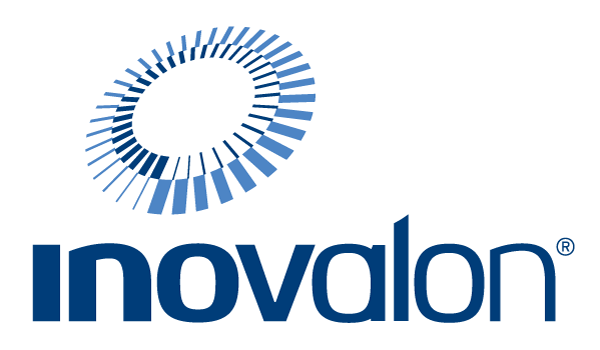
WEBINAR: HIPAA for Dummies Part II
You’re not dummies! But the legal protections surrounding health data are complicated, and we’re here to help. Join us for a reboot of our popular first “HIPAA for Dummies” webinar, during which we’ll break down the HIPAA law, its regulations, and detail the “wild west”ern landscape of protections for health data once it leaves the traditional health care system. We’ll also give an update on the new CMS and ONC Rules affecting individual access to health data, and update you on proposed changes to HIPAA currently under review at HHS.
WEBINAR: The Case for a Learning Health System: Lessons from COVID
When COVID-19 spread across the country, it took months for hospitals to piece together the best treatment options, share those learnings and for providers to adopt them. The traditional medical approach is too slow for today’s public health crises.
Precision Medicine: From Science to Value
Precision medicine is poised to have an impact on patients, health care delivery systems and research participants in ways that were only imagined 15 years ago when the human genome was first sequenced. While discovery using genome-based technologies has accelerated, these have only begun to be adopted into clinical medicine. Here we define precision medicine and the stakeholder ecosystem required to enable its integration into research and health care. We explore the intersection of data science, analytics and precision medicine in creating a learning health system that carries out research in the context of clinical care and at the same time optimizes the tools and information used to delivery improved patient outcomes. We provide examples of real world impact, and conclude with a policy and economic agenda that will be necessary for the adoption of this new paradigm of health care both in the United States and globally
Regulating digital health technologies with transparency: the case for dynamic and multi-stakeholder evaluation
Background: The prevalence of smartphones today, paired with the increasing precision and therapeutic potential of digital capabilities, offers unprecedented opportunities in the field of digital medicine. Smartphones offer novel accessibility, unique insights into physical and cognitive behavior, and diverse resources designed to aid health. Many of these digital resources, however, are developed and shared at a faster rate than they can be assessed for efficacy, safety, and security—presenting patients and clinicians with the challenge of distinguishing helpful tools from harmful ones.
Main text: Leading regulators, such as the FDA in the USA and the NHS in the UK, are working to evaluate the influx of mobile health applications entering the market. Efforts to regulate, however, are challenged by the need for more transparency. They require real-world data on the actual use, effects, benefits, and harms of these digital health tools. Given rapid product cycles and frequent updates, even the most thorough evaluation is only as accurate as the data it is based on.
Conclusions: In this debate piece, we propose a complementary approach to ongoing efforts via a dynamic self-certification checklist. We outline how simple self-certification, validated or challenged by app users, would enhance transparency, engage diverse stakeholders in meaningful education and learning, and incentivize the design of safe and secure medical apps
A Building Block for Value-Based Health Care
Over the past 10 years, the healthcare system has undergone a significant shift in the structure of health care delivery. Many hospitals and physician groups have organized themselves to address the most pressing national priorities in health care: controlling increases in the cost of care and improving the quality of care that US residents receive. Payers, both public and private, have supported this shift by implementing new alternative models of payment that incent the delivery of cost-efficient,high-quality care. The most promising alternative payment model to fee-for-service payment is the accountable care organization (ACO)model. Some available evidence suggests that ACOs, both for Medicare beneficiaries and for commercially insured patients, reduce total cost of care and improve quality.1-3Although there are different ways to construct ACO models, at its core, an ACO is a contract between clinicians and the payer to meet rigorous clinical quality and experience goals and lower spending
WEBINAR: COVID-19 Impact: Addressing Capacity and Cashflow with Virtual Care
COVID-19 has highlighted the need for virtual care strategies and has set the tone for future care as it helps to solve many of the current and future challenges health systems face with capacity, value-based initiatives, and cashflow.
Remote Patient Monitoring solutions are maximizing care delivery value by delivering quality care beyond just reducing the number of patients in healthcare systems. Consumers are becoming accustomed to the ease, convenience, and benefits remote offerings deliver.
Join experts across the provider, regulatory, and technology space for a discussion on:
- How health systems are currently responding to COVID-19 with remote monitoring;
- How remote patient monitoring (RPM) can and will be used with telehealth services in the virtual care model of the near future;
- How the current and future policy and reimbursement changes will impact RPM and telehealth delivery;
- How health systems are using technology to create a strong revenue stream amidst financial uncertainty;
- Health systems’ immediate and long-term plans for RPM post-COVID-19 and ongoing demonstrations of scale and ROI.

Peter Rasmussen
Chief Clinical Officer Cleveland Clinic
American Well Joint Venture Physician at Cleveland Clinic
and former Medical Director of Distance Health
Peter A. Rasmussen, MD, is the Chief Clinical Officer of the Cleveland Clinic + American Well Joint Venture and the Medical Director of Digital Health at the Cleveland Clinic in Cleveland, Ohio. Rasmussen is also a practicing physician at the Cleveland Clinic. As Medical Director of Digital Health, he is charged with guiding the Clinic’s overall digital health strategy and implementation of their digital medicine portal “Express Care Online” which is the Clinic’s virtual portal for on-demand, scheduled and new remote consultation services.

Robert Jarren
Managing Member, Omega Concern
Robert Jarrin is the Managing Director of the Omega Concern and is based in Washington, D.C.. Jarrin’s areas of responsibility include federal wireless health policy, healthcare legislative affairs, FDA regulatory oversight of converged medical devices, FCC mobile health (mHealth) efforts, CMS telehealth and RPM reimbursement and ONC regulation of health information technology. Externally, Jarrin serves on the Innovation Advisory to the American College of Cardiology. He is an advisory member of the Digital Medical Payment Advisory Group for the American Medical Association. And, he is an adjunct professor at George Washington University and Georgetown University in D.C..

Drew Schiller
Co-Founder and CEO, Validic
Drew Schiller co-founded and serves as the Chief Executive Officer and Board Director at Validic, the leader in technology for personal health data and remote patient monitoring. Drew is a Board Member of the Consumer Technology Association (CTA) Health & Fitness Technology Division and a member of the CTA Board of Industry Leaders. Drew also contributes to advancing the industry through CTA policy efforts and his involvement with the CTA Health & Fitness Technology Standards. Drew serves on the Board for the eHealth Initiative (eHI) and participates in the eHI Policy Steering Committee.
Paying for Value in Behavioral Health
This report attempts to offer guidance to state Medicaid programs and other stakeholders on the lessons learned by states that have sought to develop innovative behavioral health VBP initiatives. Section III summarizes the recent experiences of three states whose Medicaid programs have experimented with different types of behavioral health VBP models: Vermont, New York, and Tennessee.
The descriptions and assessments of these models are based on interviews with key stakeholders in each state and a broad review of publicly available materials. Section IV synthesizes key lessons learned from these states, including their challenges, successes, failures, and adjustments. Finally, Section V includes a discussion of California-specific considerations. This includes an overview of the existing Medi-Cal behavioral health system, with a focus on managed care structures and existing payment methodologies for behavioral health services. The conclusion synthesizes key lessons for Medi-Cal based on the analysis of other states’ efforts
